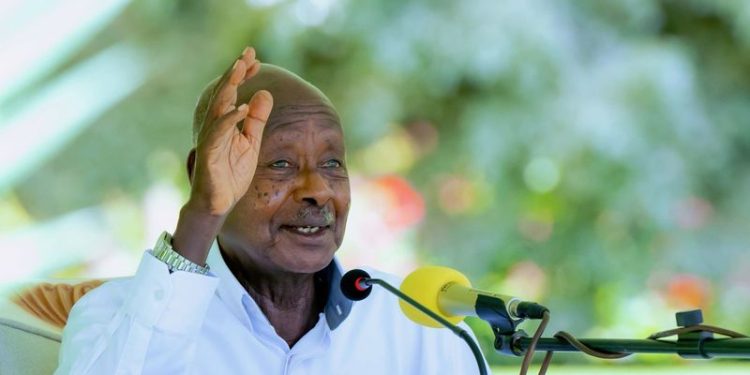Ugandan motorists may soon know who was behind the botched rollout of the Automated Express Penalty System (EPS), after President Yoweri Museveni vowed to reveal the identity of a corrupt official believed to have undermined the initiative.
The President, speaking on Saturday, attributed the program’s failure to internal corruption, accusing certain officials of misleading Uganda’s Russian partners during implementation.
“There were officials linked with the criminal gangs; they are the ones that confused our Russians who were working on that project,” Museveni stated.
He also criticized the decision-making surrounding the rollout of the penalties.
“The express penalties were too high. And they introduced them at the last minute and not beforehand,” he said, underscoring the confusion and frustration that followed the program’s launch.
The EPS was introduced as part of the larger Intelligent Transport Monitoring System (ITMS), with the goal of using automated number plate recognition (ANPR) cameras to enforce traffic rules.
Instead, the rollout was met with outrage. Motorists found themselves hit with multiple fines within hours, often without clear cause. In some cases, a single driver received several penalties in a day, leaving many questioning the fairness and accuracy of the system.
Adding to the frustration were unusually strict speed limits, such as the widely ridiculed 30 km/h restrictions on urban roads and major highways like the Northern Bypass.
In response to the public backlash, the Ministry of Works and Transport suspended the EPS for one month.
Officials cited a need to investigate the concerns raised, including duplicated penalties, technical glitches, and lack of public sensitisation.
That initial suspension has since been extended, with the Ministry confirming that consultations with stakeholders are still ongoing and the system remains under review.
The EPS turmoil was further inflamed by findings from Parliament’s Works and Transport Committee.
A recent report revealed that the financial terms between Uganda and the Russian firm Joint Stock Company Global Security (GS)—the company operating the ITMS—were overwhelmingly in favor of the foreign contractor.
According to the report, GS stands to collect 80% of all revenue from traffic fines over the next 10 years an estimated USD 408 million. In contrast, the Government of Uganda would receive only 15% (USD 76 million), while the National Economic Council (NEC) is slated to get just 5% (USD 25.5 million).
With the storm of criticism growing, Minister of Security Jim Muhwezi whose ministry oversaw procurement for the ITMS sought to distance himself from the fallout.
Muhwezi insisted that his ministry had no role in determining the fines or how they were enforced.
He clarified, “My ministry was only responsible for procurement,” adding that “the decision on penalties, fell squarely under the Ministry of Works and Transport.”
Though President Museveni has not yet named the official at the center of the controversy, his comments suggest an imminent reckoning.
His promise to hold those responsible accountable marks a rare public acknowledgment of internal failure in a high-profile government initiative.





















